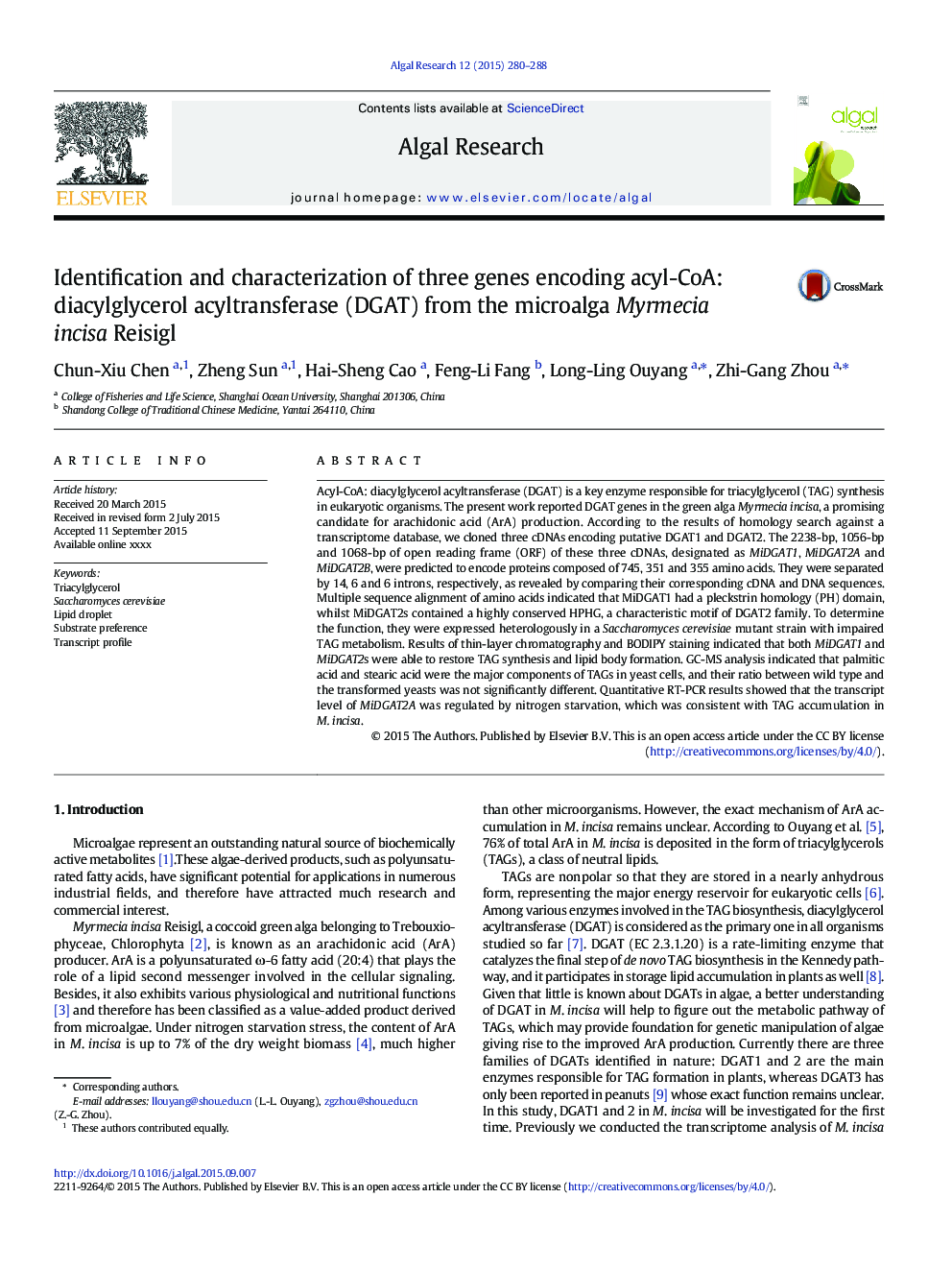| Article ID | Journal | Published Year | Pages | File Type |
|---|---|---|---|---|
| 8087847 | Algal Research | 2015 | 9 Pages |
Abstract
Acyl-CoA: diacylglycerol acyltransferase (DGAT) is a key enzyme responsible for triacylglycerol (TAG) synthesis in eukaryotic organisms. The present work reported DGAT genes in the green alga Myrmecia incisa, a promising candidate for arachidonic acid (ArA) production. According to the results of homology search against a transcriptome database, we cloned three cDNAs encoding putative DGAT1 and DGAT2. The 2238-bp, 1056-bp and 1068-bp of open reading frame (ORF) of these three cDNAs, designated as MiDGAT1, MiDGAT2A and MiDGAT2B, were predicted to encode proteins composed of 745, 351 and 355 amino acids. They were separated by 14, 6 and 6 introns, respectively, as revealed by comparing their corresponding cDNA and DNA sequences. Multiple sequence alignment of amino acids indicated that MiDGAT1 had a pleckstrin homology (PH) domain, whilst MiDGAT2s contained a highly conserved HPHG, a characteristic motif of DGAT2 family. To determine the function, they were expressed heterologously in a Saccharomyces cerevisiae mutant strain with impaired TAG metabolism. Results of thin-layer chromatography and BODIPY staining indicated that both MiDGAT1 and MiDGAT2s were able to restore TAG synthesis and lipid body formation. GC-MS analysis indicated that palmitic acid and stearic acid were the major components of TAGs in yeast cells, and their ratio between wild type and the transformed yeasts was not significantly different. Quantitative RT-PCR results showed that the transcript level of MiDGAT2A was regulated by nitrogen starvation, which was consistent with TAG accumulation in M. incisa.
Related Topics
Physical Sciences and Engineering
Energy
Renewable Energy, Sustainability and the Environment
Authors
Chun-Xiu Chen, Zheng Sun, Hai-Sheng Cao, Feng-Li Fang, Long-Ling Ouyang, Zhi-Gang Zhou,
